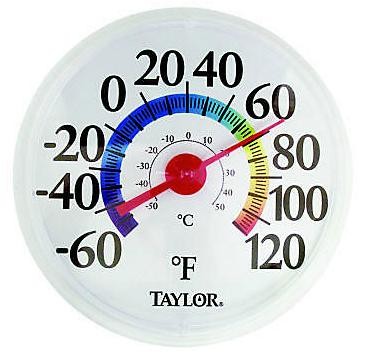 Thanks: 0
 Likes: 0
 Dislikes: 0
-
Coatings vs temperature
Hi AG. Im a detailer from denmark, and i have a big question. In many of these north companyes (denmark/sweden/norway) and so on, we have many month in one year, where the temp is faling to under 0 C´ Can ane coatings bond at these temps? Wich ones? And are there other isues with coatings in cold temps?
Detailing
-
Super Member

Re: Coatings vs temperature
 Originally Posted by mnellemann

Hi AG. Im a detailer from denmark, and i have a big question. In many of these north companyes (denmark/sweden/norway) and so on, we have many month in one year, where the temp is faling to under 0 C´ Can ane coatings bond at these temps? Wich ones? And are there other isues with coatings in cold temps?
Detailing
Welcome to AGO!
...Contact manufacturers for more specifics on recommended temperatures...
I have applied coatings (22ple VX1) in fairly cold temps ~40F (~4-5C) and have had no problem.
The coating will take longer to flash and longer to cure, so you will need to plan for these longer waiting times.
You can increase these times by setting up infrared curing lamps in your garage/shop - they are the best method for speeding up the process that I know of.
-Zach
 Retired Professional Detailer
Retired Professional Detailer
-
Super Member

Re: Coatings vs temperature
I believe CQuartz UK edition was originally designed for the colder climate.
-
Super Member

CQUK can be applied at temps as low as 40 degrees.
In my day we didn't have the Internet, iPods,iPads, or smart phones....but we had some really bad-azz cars.

-
Super Member

Re: Coatings vs temperature
Using Opti-Gard/Opti-Coat 2.0 as a "Coating example:
-These Optimum Coatings are said to bond with CC-paint through 'covalent bonding'...
-What, then, is the lowest temperature these Coatings can be considered to effectuate such covalent bonding?
Is this lowest temperature an:
1. Effective temperature? Where:
a.) Results justify the cost(s) of application
b.) Budgetary costs associated with your detailing operation must be taken into consideration
2. Eutectic temperature?
a.) The freeze point of a solution, based on the concentration of chemicals in the solution...
not the volume that, in this case, is in the OptiGard's/Opti-Coat 2.0's syringes.
b.) There are 'phase curves charts' regarding freeze points of various solutions.
c.) But...Most Coatings' manufacturers will not be giving away the farm when it comes to divulging their products' ingredients.
Then there's always:
-Ambient temperature
-Panel temperature
-Humidity
-Wind/air-flow conditions
It's been said that between 50-90 F is usually the optimum temperature range for application of most car care products.
However:
-Contacting the good folks at Optimum Polymer Technologies, Inc. would provide the best information regarding the:
lowest & highest recommended temperatures for application of their Coating-products.
-I'm sure the same process is an acceptable practice for the other Coatings' manufacturers.
Also...
Welcome to AGO...and: Stay Warm!!

Bob
"Be wary of the man who urges an action in which he himself incurs no risk."
~Joaquin de Setanti
-
Re: Coatings vs temperature
 Originally Posted by mnellemann

Hi AG. Im a detailer from denmark, and i have a big question. In many of these north companyes (denmark/sweden/norway) and so on, we have many month in one year, where the temp is faling to under 0 C´ Can ane coatings bond at these temps? Wich ones? And are there other isues with coatings in cold temps?
Detailing
Hi and welcome to AutogeekOnline!
Here's an article I wrote on this topic as it relates to car care products in general but the same ideas would apply for coatings also...
Big picture = Avoid applying coatings in extreme temperatures at either end of the temperature spectrum.
What temperature ranges are best for applying compounds, polishes, waxes and paint sealants

When detailing your car, you will get better performance from your products, (compounds, polishes, waxes and paint sealants), in moderate temperatures and avoid working in extreme cold and extreme hot temperatures. Not only will your products perform better but so will you...
When we talk about surface temperatures, we need to consider four factors:
- Surface Temperature
- Ambient Temperature
- Relative Humidity
- Surface Temperature (Actual surface temperature of the vehicle)
The best surface temperature range for applying compounds, polishes, waxes and paint sealants is in a range of 60 degrees to 80 degrees Fahrenheit. A simple test you can do is to feel the surface, it should not feel warm or hot to the touch.
Most premium quality car detailing products will work easily within a much broader temperature range, such as, 50 degrees to 90 degrees Fahrenheit but optimum results are when you're working in a range of 60 degrees to 80 degrees.
Ambient Temperature or Outside temperature
Ambient temperature is the room temperature or the temperature of the surrounding environment. It's easily possible to have between 10 to 50 degrees difference in ambient temperature as compared to the surface temperature.
This difference in temperatures can make the difference between a product that's easy to work with, or difficult to work with. And of course, the hotter the ambient temperature, the faster liquid products are going to dry.
Humidity (Moisture in the air)
Humidity is moisture in the air. Technically there is Relative Humidity and Absolute Humidity, but as it relates to these procedures or characteristics,
- Applying
- Working with by hand or machine buffing
- Drying time, curing time, crosslinking
- Wipe-off or removal of car care products.
How humid it is or more specifically, how much moisture in the air there is, will dramatically affect how easy or how difficult a product will be to work with.
Low humidity in the warm to hot temperature range
In warm to hot temperatures, low humidity will cause liquids to evaporate and dry more quickly. This can make a product difficult to work with and/or decrease the buffing cycle or working time of the product.
Low humidity in the low to cold temperature range
Low humidity in low temperatures tends not to be a factor in buffing cycle or working time, nor drying times for waxes and sealants.
(Low temperatures are a factor, but not low humidity in low temperatures).
High humidity in the warm to hot temperature range
High humidity in high temperatures tends not to be a factor in working with buffing cycles and working time of compounds and polishes. High humidity in high temperatures will affect drying and curing times of different waxes and paint sealants.
High humidity in the low to cold temperature range
Extremely cold temperatures can make products hard to work with because extreme cold temperatures can cause liquids like compounds and polishes to thicken and become less workable. High humidity in cold temperatures can also increase the amount of time necessary a wax or paint sealant to dry.
Generally speaking, extreme temperatures, both cold and hot will make any product and/or procedure more difficult than working in a temperature range from 60 to 80 degree.
Direct sunlight
Direct sunlight will dramatically increase the surface temperature compared to ambient temperatures and make compounds, polishes, waxes and paint sealants extremely more difficult to apply, work and remove.
Note: While some products state they can be used in direct sunlight, direct sunlight is kind of a vague term. There's a difference between working in direct sunlight in winter in Oregon in the morning and working in direct sunlight in summer in Arizona at noon.
Besides that, any product that can be used in direct sunlight will still always be easier to use on a cool surface in the shade.
Air current/Wind
Air current/air flow, or windy conditions will act to increase the evaporation speed and potentially making some products more difficult to apply, work, or remove. In some cases this can be a bonus, helping a wax to cure/dry more quickly.
Summary
The best conditions for using compounds, polishes, waxes and paint sealants on automotive paints would be in a cool place, out of direct sunlight, in a surface temperature range between 60 degrees and 80 degrees Fahrenheit, with comfortable to low humidity and with a light breeze to create the perfect conditions for detailing your car's finish.
Common sense and a good rule-of-thumb is to avoid applying any product if the surface is too warm to touch with the palm of your hand comfortably.
50 degrees Fahrenheit = 10.0 degrees Celsius
90 degrees Fahrenheit = 32.2 degrees Celsius

-
Re: Coatings vs temperature
A little appreciated fact in this sector (presumably, because most of the products are lifted from other markets as opposed to developed specifically) is that coatings are every bit, if not more, sensitive to moisture (i.e. humidity) as they are temperature. In practice, any coating products we have done will be perfectly OK over a wide range of temperatures - they won't really tend to go 'off'. However, let a bit of moisture (e.g. a non-sealed container) and you get the crusty material on the closure or around the edges, thickening (the early stages of gelling), hazing, etc. Of course this is what occurs in the bottle but it does translate - in hery high humidity environments, coatings can cause issues because they will start curing too rapidly so you can get non-uniformity (can show us as hazy areas or something like a distorted reflection) and if the humidity is too low you can get issues because the product take too long to cure.
I have seen a number of occasions where users have suffered from these effects but the cause has never been identified to them.
-
Re: Coatings vs temperature
 Originally Posted by PiPUK

coatings are every bit, if not more, sensitive to moisture (i.e. humidity) as they are temperature.
Thanks for adding that tidbit of info, I know I appreciate it.

-
Re: Coatings vs temperature
thanks for the info. I have done some coatings over the summer but when the winter comes i think i eather have to not offer that kind of service during the winter or find a coating that will bond at 0 to 5 C. my probleme is that i have an order on 2 teslas in january :-)
I think that the solution must be an infer red lamp.
Similar Threads
-
By dlefty in forum Auto Detailing 101
Replies: 8
Last Post: 11-06-2020, 10:12 PM
-
By scv2005 in forum Ask your detailing questions!
Replies: 24
Last Post: 04-27-2020, 12:34 PM
-
By Buster906 in forum Auto Detailing 101
Replies: 15
Last Post: 12-11-2017, 11:41 AM
-
By waterman in forum Auto Detailing 101
Replies: 0
Last Post: 08-13-2017, 10:29 AM
-
By RedPanda in forum Auto Detailing 101
Replies: 1
Last Post: 11-05-2016, 10:47 AM
 Members who have read this thread: 0
Members who have read this thread: 0
There are no members to list at the moment.
 Posting Permissions
Posting Permissions
- You may not post new threads
- You may not post replies
- You may not post attachments
- You may not edit your posts
-
Forum Rules
|
| S |
M |
T |
W |
T |
F |
S |
| 31 |
1
|
2
|
3
|
4
|
5
|
6
|
|
7
|
8
|
9
|
10
|
11
|
12
|
13
|
|
14
|
15
|
16
|
17
|
18
|
19
|
20
|
|
21
|
22
|
23
|
24
|
25
|
26
|
27
|
|
28
|
29
|
30
| 1 | 2 | 3 | 4 |
|












 Thanks:
Thanks:  Likes:
Likes:  Dislikes:
Dislikes: 

 Reply With Quote
Reply With Quote



Bookmarks